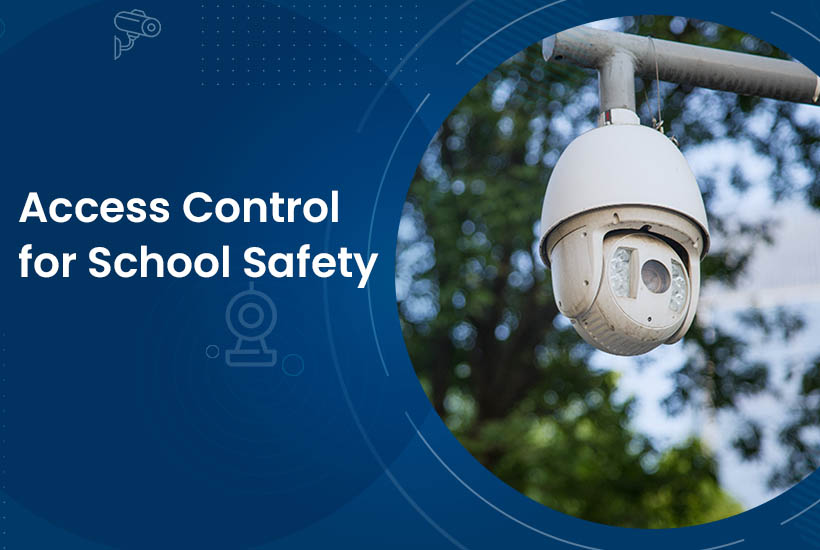Security Footage Estimated Reading Time: 4 minutes
With better cameras and cheaper storage space, more and more businesses are relying on security footage to protect their patrons, employees and premises. However, most work days thankfully are pretty uneventful and that means a lot of stored footage with little to no value in terms of security (however CCTV footage has other great uses). With the amount of data being stored and storage being vast but not infinite, it is important to know how long businesses should keep their security footage.
How Long Do Companies Keep Security Footage? – Data Storage Requirements
Security footage can contain valuable information. As fowl play is not always noticed immediately it’s important to save footage for at least a little while to have something to go back to, for observing a specific incident or making note of particular trends in activities. So how long do businesses keep security footage for? Well it depends, however security footage is typically held for 30 to 90 days. There are different factors which contribute to the decision making on how long to hold onto it.
Storage Space for Security Footage
There are a wide range of manufacturers for surveillance equipment and they each have different models of their devices and different approaches to storing media. Physical on-site media has its limitations and there is a fairly specific amount of recording time for the storage media in question. These can be SD cards, thumbdrives, internal or external hard drives.
There are also cloud storage options available and these typically have much more space available. These are now more commonly paired with IP systems that save them to an NVR. They also have the added convenience of being accessible to business owners and staff remotely via a secure login. Personnel can check footage and even receive alerts for certain triggers on their phones.
Security Footage Storage Times
Smaller businesses with a limited budget for surveillance equipment and staff may opt to hang on to surveillance footage for the minimum amount of time that they feel comfortable with. When physical media was the only option and quite low in storage space this could range from a few days to 2 weeks. Now it’s more likely that they will save security video for 30 days at the least.
Larger businesses will have longer storage times and will typically hold onto security footage for up to 90 days. More robust operations also have more protocols for combing over footage and may even use software for object recognition to speed up the process.
Some premises will also have standard operating procedures for how long to hold onto security footage, based on who or what they are protecting and what responsibilities they have to management, shareholders, customers and tenants.
Retail stores, hotels and hospitals often keep surveillance footage for 90 days. In these environments they are not only concerned with security matters related to personnel, which can be checked and observed on a daily basis but also for their patrons. These patrons might not realize something has happened until after leaving the premises. In the case of hospitality premises mishaps can happen to personal property while patrons are away.
Legal Obligations for Keeping Security Footage
Business owners would be wise to have a fair amount of stored footage to be able to maintain customer satisfaction by having the resources necessary to help solve their issue at hand. Many industries are also mandated by federal court to keep surveillance video for a certain amount of time. This covers high-risk sectors such as banks and related infrastructure, cannabis facilities and gaming. In the case of legal matters, for protecting the entity itself and for presenting evidence of criminal matters in court.
Accessing Security Footage Needs
When considering where and how to store security footage, businesses should first assess their needs (from an infrastructure and from a legal standpoint) and then look at what existing solutions are available on site or via cloud-based storage services. It’s important to create policies around data storage that are compliant with industry regulations in order to avoid any data protection or privacy concerns down the road. Finally, it’s essential to transfer security footage from one type of storage system to another according to protocol. Whether that is on-site or off-site, using procedures that ensure data integrity and accuracy.
Establish a Retention Policy for Keeping Security Footage
A retention policy can help you determine the length of time that security footage needs to be stored and can also specify what type of footage needs to be retained. Automating a retention policy makes the process easier and ensures that all updates are captured in a centralized location.
To ensure that your archive is always accessible and secure, you’ll need adequate staff who are familiar with data security protocols and have the ability to properly store and access footage. You’ll also need a plan for disposing of outdated footage once it no longer meets regulatory requirements.
Cloud Backup Solutions
Running a successful business is all about keeping your data safe and secure. That’s why it’s important to have a cloud backup solution in place that meets your specific security needs. There are many benefits to using a cloud backup solution, including the following:.
1. Designing and automating data retention policies. Cloud backup solutions allow you to store footage for a certain amount of time before it is automatically deleted. This way, you can ensure that important footage is kept safe and secure without having to worry about filling up your storage space.
2. Extra layer of security for security footage. Cloud backup solutions offer robust security features that make it difficult for unauthorized people or entities to access or steal your footage. They also offer features such as encryption, which ensures that your footage remains confidential and protected from prying eyes.
3. Storing and managing footage securely. Cloud backup solutions allow you to store footage in a secure location. On the internet or on another server off-site. Which makes it easy to access and manage even if your office or home is destroyed. In an accident or disaster. You can also be sure that all files are properly backed up so that you can restore them if necessary in the future.
4. Ensuring traceability and accountability. Cloud backups help keep track of who has accessed. Which files and when, which helps ensure accountability for any illegal activity conducted with your video content. Additionally, they provide an audit trail. So you can easily track changes made to videos throughout the life cycle of the project.. Finally, they are reliable and scalable enough for future growth needs without costing excessively more than traditional storage solutions.
5. Cost effective solutions that meet current and future needs. Cloud backup solutions offer flexible pricing plans. That make them affordable even if you only need basic protection for a few devices or locations. With automated backups you never have to worry about losing any data.
Cloud backup solutions are an excellent way to securely store and manage footage, while ensuring traceability and accountability. Understanding the benefits of data retention can help businesses make informed decisions when it comes to storing security footage.





